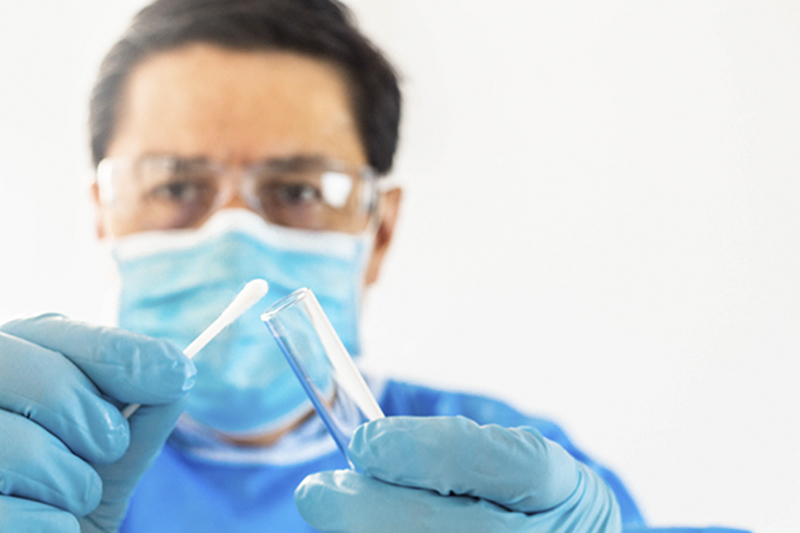UCLA Scientists Pioneer Faster and Scalable COVID-19 Testing Technology

The U.S. Food and Drug Administration has granted emergency use authorization for scientists at UCLA to begin using a new method of COVID-19 detection by applying a sequencing technology called SwabSeq. The method is capable of testing thousands of samples for coronavirus simultaneously, producing accurate, individual results in 12 to 24 hours.
SwabSeq adds a unique molecular barcode to each sample in the first step of its processing, and the samples are then combined in a sequencer. The barcodes are used to identify which specific sample has the virus. The underlying technology of SwabSeq can be applied to any type of sample collection, such as a nasopharyngeal, oropharyngeal or saliva test.
“SwabSeq is highly scalable because it leverages two decades of advances in genomic sequencing technology,” said Eleazar Eskin, chair of the department of computational medicine, which is affiliated with both the David Geffen School of Medicine and the Samueli School of Engineering at UCLA. “Using SwabSeq, a relatively small lab can process tens of thousands of samples per day.”
Eskin’s team collaborated with UCLA Health and others on the technology, including Octant — a start-up founded and incubated at UCLA. SwabSeq is a modification of Octant’s technology that is being applied toward drug discovery, and has been made available broadly to fight the pandemic.
UCLA scientists have been leading a broader coalition of academic and industrial labs around the world, developing the technology to scale testing.
